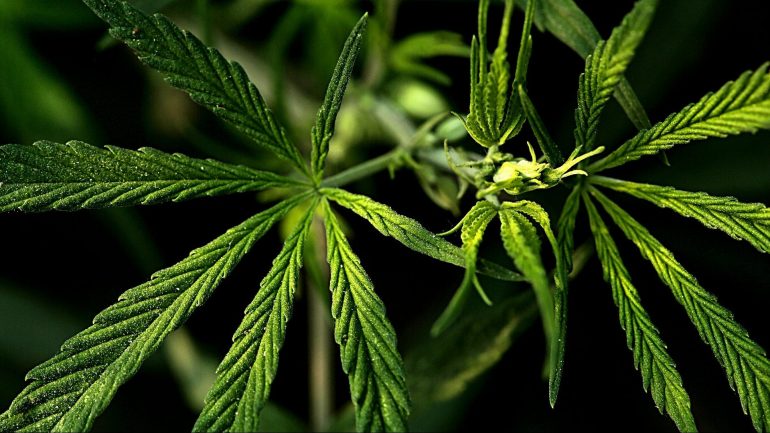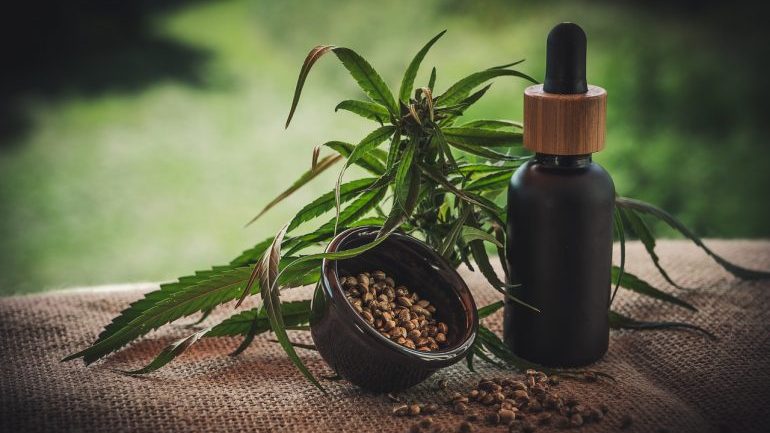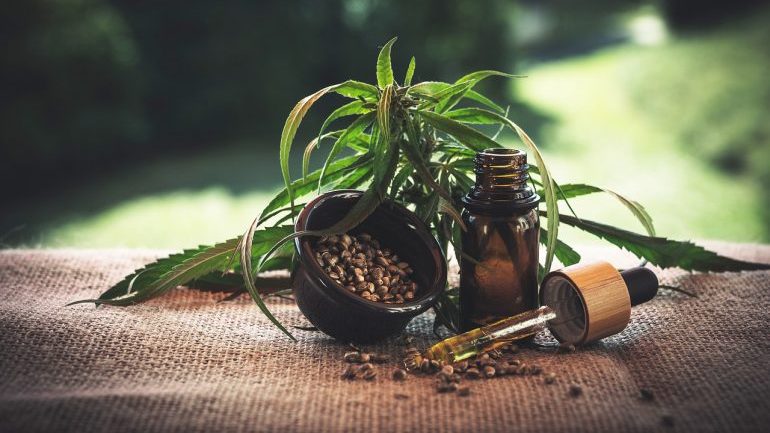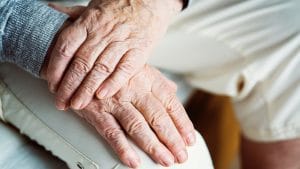Using Marijuana for Sleep: Everything You Need to Know
written by / November 4, 2019

According to recent research, nearly one-third of the population suffers from a sleep disorder. In both the short and long term, this is a significant problem that needs to be addressed. With this in mind, this article will provide you with more information about the use of marijuana for sleep.
Healthy sleep is essential not only for our mental health but also for our overall vitality. The primary benefits of sleep are well-known. People who sleep well are generally healthier and have a stronger immune system, better mental balance, and well-functioning organs and metabolic processes. However, if insomnia or another sleep disorder makes it hard to sleep, you can experience a lot of unwanted side effects.
Medical Marijuana for Sleep Disorders
Research shows that cannabis has been recommended and used for sleep problems for centuries. In recent decades, science has revealed an explanation for how effective medical marijuana is in helping with sleep. In addition to its potential in managing depression, marijuana affects two known sleep patterns—the sleep cycle and one’s breathing during sleep. Nevertheless, the field needs to see a few more studies covering medical marijuana for sleep.
Marijuana is effective due to compounds in the plant known as cannabinoids or, specifically, phytocannabinoids. The potent action of phytocannabinoids on the human body is explained by the fact that they are structurally similar to endocannabinoids, compounds that are naturally synthesized and used by the human body.
The most-studied cannabis compound, tetrahydrocannabinol, or THC, is a structural mimic of the body’s anandamide. Using THC for sleep is not a popular option, although it has a profound role in the brain’s anti-stress mechanisms. Studies confirm that even those with chronic insomnia fall asleep much faster and deeper after taking THC.
However, the dose is critical: after a specific upper limit, the molecule causes a strong over-excitation that impedes sleep. Additionally, a study in 2016 found that daily marijuana use had an adverse impact on sleep quality in young adults with no known sleeping difficulties. In line with this, CBD oil without THC may avoid some adverse reactions.
The Effects of Cannabis on Sleep
A systemic review from 2018 confirmed that low doses of marijuana for sleep aid use significantly strengthens the sleep cycle. It speeds up the deep sleep phase and prolongs the duration of the slow-wave sleep phase. Deep sleep is key to human health: your body needs to spend enough time in this phase for the brain to effectively recover from the day and prepare for the next. This study also raised the question of whether users can develop a tolerance to the behavioral, physiological, and neural effects of cannabis.
Using marijuana before bedtime severely shortens the REM phase. Whether this effect is more or less favorable is still widely debated. In any case, when you stop using cannabis for sleep, a REM “yo-yo effect” occurs. In this phenomenon, phytocannabinoid clearance causes the brain to experience prolonged, strong, and vivid REM phases with colorful and memorable dreams. The effect wears off in about 3–5 days, after which a normal sleep cycle is restored.
Cannabis is even capable of improving respiratory function in individuals affected by sleep apnea. The use of marijuana for sleep apnea improves the quality of life for more than 55% of patients with the condition. This was demonstrated in a study on THC’s ability to increase muscle tone in the upper respiratory tract. This is important because there’s no definitive cure for the disease, and if left untreated, apnea dramatically increases the likelihood of developing cardiovascular disease, hemorrhagic hypertension, and stroke.
How Effective Is Cannabis Oil for Sleep?
Everyone wants to wake up in the morning feeling refreshed, active, and cheerful. However, younger generations often perceive insufficient sleep as part of their lifestyle. But with age, inadequate and disturbed sleep becomes a substantial problem. As a result, many people take sleeping pills that can have side effects like daytime sleepiness, fatigue, impaired concentration, and so on. Sleep medication can also be addictive—therefore, some pills are prescribed by doctors for only a short time.
The use of CBD oil for sleep has been extensively researched in recent years. CBD is a compound that can be found in cannabis and marijuana but doesn’t lead to an altered state of mind or consciousness.
CBD hemp oil is a natural product, a kind of herbal sleep aid, where the hemp extract is dissolved into cold-pressed cannabis oil in a particular proportion. However, CBD oil’s possible side effects have so far not been mentioned among most scientific research.
When using cannabis oil for sleep, CBD binds to the endocannabinoid receptors in the body and affects the quality of our sleep. Recent studies have also shown that the cannabinoids in CBD oil also help reduce pain, which can further improve the quality of one’s sleep. It’s well-known that sleep disorders are an accompanying symptom experienced by nearly everyone suffering from chronic pain. This is another reason some people use cannabis for sleep.
The Effects of CBD
CBD is so popular because it’s believed to have anti-inflammatory, analgesic, and anti-anxiety properties. While CBD is sometimes marketed as an oil, it can be used in cosmetics, over the counter sleeping pills, and foods like gummy bears. For example, because CBD directly affects the sleep cycle and the deep sleep phase, people will often use CBD gummies for sleep.
As for how well people sleep while using it, experts say CBD fumes can work faster, but prescription sleeping pills and oils can help you sleep for a longer period. CBD hemp oil has also been shown to help people who suffer from sleep disorders due to anxiety or stress.
If you know what the underlying cause of your insomnia is, using CBD oil for sleep and anxiety could be even more effective. Additionally, making certain lifestyle changes can help. For example, consider avoiding coffee, alcohol, cigarettes (especially in the afternoon), and medications that can cause insomnia. Make sure your environment is as quiet as possible, and exercise at least three times a week. Some patients feel better when they take sleep aid pills.
More research is still needed to determine the safety and efficacy of CBD for sleep. There are very few papers on CBD’s impact on insomnia. However, the current studies show that CBD can reduce a person’s anxiety and probably reduce pain. And there’s no doubt that managing stress and pain can help you fall asleep better.
The Relationship Between Marijuana and Sleep
In addition to its role in relieving pain, marijuana seems to have a wide range of effects on sleep. These effects come from the cannabinoids that mimic the action of chemicals found naturally in the brain. They’re part of the body’s endocannabinoid system, which is responsible for regulating sleep, among other things.
Studies also show that cannabis can have a direct effect on sleep. Here are five of the essential connections between CBD and sleep that studies have identified so far:
It’s Easier to Fall Asleep
Some of the earliest studies on the use of cannabis have shown that those taking it fall asleep an average of one hour earlier than usual. In fact, THC can significantly reduce the time it takes for both insomnia sufferers and those without insomnia to fall asleep.
Sleep That Lasts Longer
Despite the debate on whether to use CBD vs THC for sleep, both ingredients can improve the total time spent asleep. Increasing the dose of THC improved the total sleep time for most people. However, higher doses of THC also produce a sensation similar to an alcohol-induced hangover in the morning, which doesn’t occur with lower doses.
Better Breathing During Sleep
When it comes to the medical use of CBD for sleep apnea, cannabis can offer incredible benefits to approximately 25% of the men and 9% of the women who suffer from this condition.
A Deeper Sleep
Studies show that the presence of THC in the body can significantly prolong the deep sleep phase. This can have positive health effects since this is thought to play an essential role in the body’s overall recovery process.
A Shorter REM Phase
Another way in which cannabis and REM sleep are linked is the following: cannabis affects the sleep cycle by reducing the REM phase. Less REM sleep may or may not be one of the adverse effects of cannabis use. However, people who have given up cannabis are more likely to experience a longer REM sleep, also known as a “REM rebound,” accompanied by an increase in the number of dreams they have. Fortunately, this effect tends to disappear within days or weeks, at most, depending on the individual.
When to Take CBD Oil for Sleep
If you haven’t yet researched CBD oil, you should know that it’s one of the hundred chemicals found in hemp plants. Unlike the other products obtained from this type of plant, it’s a pure, non-psychoactive product. Some studies have shown its potential in helping with a range of physical and mental illnesses.
Experts say that if you’re considering taking CBD, you should talk to your doctor about how much CBD oil to take for sleep. If your doctor recommends this as a sleep aid, you should consider (or request) an analytical certificate when you buy the CBD. The document shows how this product has been tested for CBD and THC levels and whether there are potential contaminants. Be sure to inform your doctor if you’re taking other medicines since CBD may interact with them.
The following covers the most common reasons people use marijuana for sleep:
Chronic Pain
A large number of people are affected by chronic back pain, which leads to chronic sleep deprivation. In fact, chronic pain is one of the most common sources of a sleep disorder. Due to the continuous transfer of nerve impulses from the body’s pain receptors, the brain remains active, making it nearly impossible to fall asleep. This goes on all night, and as a result, the affected person is unable to get enough deep sleep. A CBD tincture for sleep will help in cases like these.
Studies on the effect of CBD oil on pain regulation report encouraging results. One of the explanations is that CBD interacts with specific receptors in the brain that are part of the endocannabinoid system. Most importantly, in the case of chronic pain, affected people can rely on the combined anti-inflammatory and analgesic properties of cannabis for pain and sleep.
Anxiety
Anxiety is another common source of sleep problems. Statistics show that there’s been a continuous increase in the number of people affected by sleep deprivation due to their anxiety. In the face of our busy daily lives, more and more people at the end of the day are unable to rest adequately.
As CBD oil is a well-known means of coping with stress and anxiety, more and more people suffering from sleep deprivation choose specific marijuana strains for sleep. The results of its use in the field are promising, due mainly to the fact that it isn’t addictive and is more effective than traditionally prescribed drugs for prolonged use.
Sleep Apnea
People who suffer from sleep apnea frequently wake up as their throat muscles relax and obstruct their airways—this can occur up to 30 times per hour. As a result, people with this condition feel tired after waking up regardless of how long they slept. However, it turns out that taking cannabis for sleep apnea can alleviate its symptoms.
Depression
Depression and sleep problems are mutually connected. This means that depression often becomes a source of sleep deprivation, leading to tension and irritability. The official scientific definition of depression states that the condition is rooted in the nervous system and is often caused by a chemical imbalance in the brain. And this is precisely where the link between sleep and marijuana is so important. Valuable studies have illustrated the impact of cannabidiol on chemical regulation in the brain.
Post-Traumatic Stress Disorder
When someone has a shocking, scary, or devastating experience, they risk developing post-traumatic stress disorder—a primary symptom of which is sleep disturbance. The reason for this lies in the fact that those affected by the disorder become over-excited and regularly recall the traumatic experience. Due to the increased brain activity, they wake up often, usually have anxiety, and can’t sleep well in the first place.
The right CBD oil dosage for sleep in these cases varies quite a bit. However, once the correct dosage is found, the CBD will stimulate the natural synthesis of the hormone anandamide in the body. When stressed, the body secretes anandamide, which helps people temporarily break away from these stresses so that they can fulfill their obligations. Those affected by PTSD report far lower levels of anandamide, making it much harder to cope with stress. Taking CBD oil can normalize the rhythm of their daily routine.
Restless Legs Syndrome
Aside from the great physical discomfort, this condition has other consequences, such as lack of sufficient sleep. An appropriate CBD dosage for sleep can make it possible to manage the disease. While the causes of this syndrome remain unknown, researchers suggest that it’s most likely due to changes occurring in the central nervous system.
No formal studies have yet been undertaken to prove the benefits of using CBD oil for this condition. However, there is a steady increase in the number of RLS patients who report significant improvements in their health as a result of taking hemp oil or marijuana for sleep problems like this one.
A likely explanation for this is that hemp oil inhibits prostaglandin synthesis, thereby blocking the pathways of pain receptors. This also explains why patients with this syndrome can’t control their feet during a seizure. A sleep aid in the form of CBD oil could benefit these patients.
FAQs
How many drops of CBD oil should one take for sleep?
No matter the form, the rule of thumb is that between 10 and 20 mg of CBD will provide significant results. A lower dose may not be enough to make a difference. On the other hand, a higher amount could lead to tiredness in the morning or other adverse effects. It’s recommended that you see a doctor before you start using CBD oil. This way, you can inform them about your condition and any other medication and prescription sleep aids that you take.
Is marijuana good for sleep?
It’s known that marijuana can affect sleep in many ways, including making it easier to fall asleep, sleep longer and deeper, have a shorter REM phase, and breathe better while you sleep (which is vital for people who suffer from sleep apnea). Before answering “Is weed good for you?” we have to take into account the fact that the FDA does not yet approve most cannabis-based products for clinical use.
What is the best marijuana for pain and sleep?
There are different types of marijuana plants, mainly represented by Cannabis indica, Cannabis sativa, and hybrids. A study demonstrated that participants preferred indica strains when it comes to pain relief, sedation, and better sleep. The sativa strains were used mainly for energy and mood management.
While we know there’s a positive relationship between CBD oil and sleep, most marijuana-based products don’t have approval from the FDA. More studies are necessary to confirm cannabis’s safety and effectiveness in clinical practice.
Conclusion
CBD-based therapy doesn’t seem to lead to addiction, even with prolonged use. This is great news since, as we’ve seen, it offers positive results for many sleep problems, including sleep deprivation, obstructive sleep apnea, and depression. Although there’s still a need for extensive research in the field, the use of marijuana for sleep inspires hope for many suffering from chronic sleep disorders.











Warning: Undefined array key "format" in /home/602518.cloudwaysapps.com/cspedpjass/public_html/wp-content/themes/disturbmenot/template-parts/post-item/post-comment.php on line 23
Warning: Undefined variable $commenter in /home/602518.cloudwaysapps.com/cspedpjass/public_html/wp-content/themes/disturbmenot/template-parts/post-item/post-comment.php on line 27
Warning: Trying to access array offset on value of type null in /home/602518.cloudwaysapps.com/cspedpjass/public_html/wp-content/themes/disturbmenot/template-parts/post-item/post-comment.php on line 27
Warning: Undefined variable $commenter in /home/602518.cloudwaysapps.com/cspedpjass/public_html/wp-content/themes/disturbmenot/template-parts/post-item/post-comment.php on line 29
Warning: Trying to access array offset on value of type null in /home/602518.cloudwaysapps.com/cspedpjass/public_html/wp-content/themes/disturbmenot/template-parts/post-item/post-comment.php on line 29